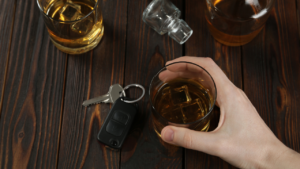How do Fingerprints and DNA Impact Florida Criminal Drug Cases?
Many criminal cases boil down to a question of identity. Law enforcement says you committed the crime, while you say you didn’t. Often, prosecutors use DNA in Florida criminal drug cases to prove your identity and to demonstrate you were present at the scene of a crime.
Just because your DNA, fingerprints, or other forensic evidence comes up in a criminal investigation, however, doesn’t mean you committed a crime. You may leave DNA evidence in different places for perfectly innocent reasons. In some cases, DNA and fingerprints can even prove that you did not commit a crime.
If an officer has arrested you for a crime or a prosecutor has charged you with one, they will try to use forensic evidence against you. A skilled Florida criminal defense lawyer can help protect your rights and defend yourself against the charges.
What Is DNA?
DNA stands for deoxyribonucleic acid. For the purposes of DNA evidence and how it impacts your case, what you need to know is that DNA is a molecule in almost every cell of living organisms.
Because the DNA of every human is different, it is one of the most powerful forms of evidence police and prosecutors use to identify criminal suspects. Modern forensic science can collect and analyze DNA samples — at crime scenes, on bodies, or from weapons — to determine identity. Courts then may use this to convict or exonerate you as a criminal defendant.
How Does Florida Law Enforcement Use DNA?
Law enforcement uses DNA in Florida criminal drug cases to investigate a person’s involvement in a crime. However, DNA (along with fingerprints and other forensic evidence) at the crime scene means nothing if law enforcement doesn’t have a sample to match it against — and it doesn’t automatically prove that you were at the crime scene when the crime happened.
After collecting DNA samples at a crime scene, how does Florida law enforcement collect DNA samples from individuals for comparison?
Qualifying Offenders
Florida Statute § 943.325 requires the collection of DNA samples from every person considered a “qualifying offender.” This means that anyone who meets certain state criteria must submit a sample. Qualifying offenders include people:
- Committed to a county jail, under the supervision of the Department of Corrections, or committed to the Department of Juvenile Justice
- Convicted of a felony or attempted felony in Florida (or of a similar violation in another jurisdiction)
- Arrested for a felony in Florida
- Convicted of certain misdemeanor offenses, including stalking, voyeurism, violations related to obscene materials, offenses that benefit a criminal gang, and other violations
The DNA goes into an FBI database called the Combined DNA Index System (CODIS). Law enforcement can search CODIS to see whether DNA collected at a crime scene matches someone already in the system.
Voluntary Police Requests
Law enforcement may ask you to provide a DNA sample, even if you are not a suspect. You might comply or wish to clear your name because you think you have no choice.
Legally, however, officers must not try to force you to comply by threatening to consider you a suspect. If you give a sample, law enforcement may enter your DNA into CODIS or an established statewide DNA database, where it can be difficult to remove. You have the right to refuse or speak to a lawyer before agreeing.
Contact a Florida Criminal Defense Attorney
If you’ve been arrested for a drug crime or have questions about the use of DNA in Florida criminal drug cases, the Law Office of Michael White can help. We are committed to defending those accused of drug charges, both misdemeanors and felonies. Call (954) 270-0769 for more information at any time of day or night, or to schedule a free consultation.




